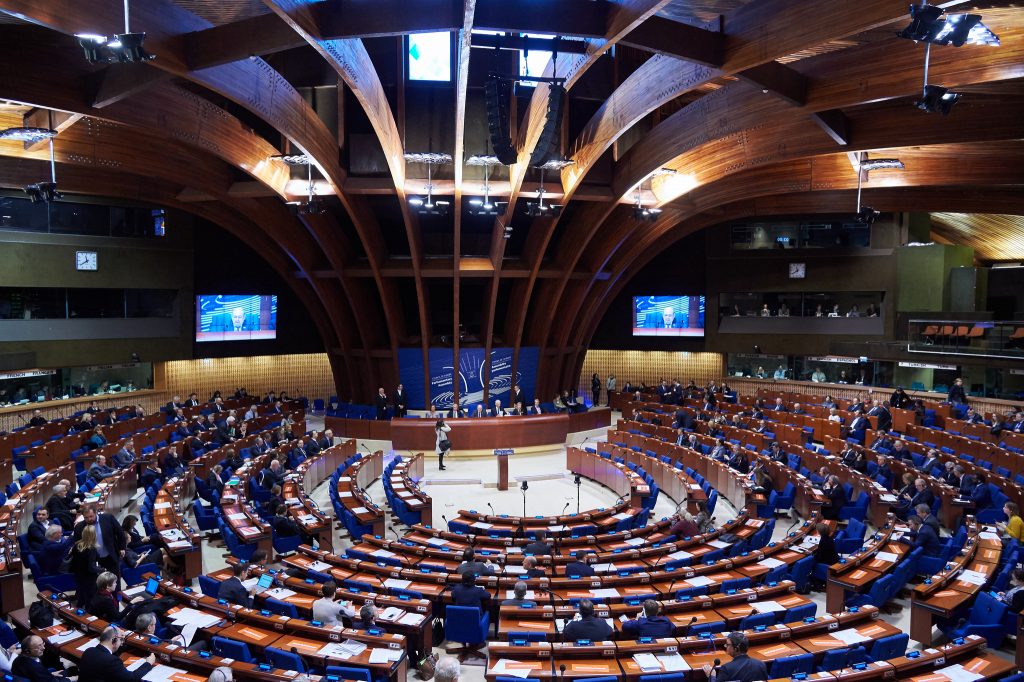On March 17, the co-rapporteurs of the Parliamentary Assembly of the Council of Europe (PACE) – Titus Corlăţean (Romania, SOC) and Claude Kern (France, ALDE) – issued a statement highlighting “a window of opportunity for Georgia’s democratic consolidation” offered by the March 8 Agreement on the election system. The statement comes after Corlăţean’s visit to Tbilisi on March 11-12.
On March 8, representatives of the ruling and opposition parties finally reached a consensus on changing the electoral system during a round of negotiations held at U.S. Ambassador’s residence. The agreement was unanimously endorsed by international observers and Georgia’s partner countries, including the PACE.
On March 11, the ruling party registered a bill envisaging adoption of constitutional amendments within the framework of the March 8 agreement. According to the bill, 2020 parliamentary polls will be held based on what is referred to as the 120/30 system, which means that 120 MPs will be elected through proportional party lists and 30 – from single-mandate constituencies (also known as the majoritarian voting system).
The co-rapporteurs welcomed “the constructive spirit” in which the constitutional amendments to implement the agreement – “including with regard to the sensitive issue of the election districts” [redrawing single-mandate constituencies – editor’s note] – had been agreed upon between all stakeholders. They expressed hope that the “new spirit of engagement and cooperation would continue to exist during the organization and conduct of the elections.” They called upon all political forces to maintain the “momentum” and to demonstrate “the same political will and maturity” to find agreement on other divisive issues.
PACE monitors Titus Corlăţean and Claude Kern, after positive #Tbilisi visit: #Georgia has “a window of opportunity“ https://t.co/QnWp6GZmm7 pic.twitter.com/PHDifRZiqC
— PACE (@PACE_News) March 17, 2020
PACE monitors emphasized that the implementation of the pledge to refrain from “politicizing” the electoral process and judiciary was to prove “more complex and sensitive,” notwithstanding clearly existing political will to do so. They further highlight need to ensure “the proper representation” of female candidates both in proportional and majoritarian poll in 2020 parliamentary elections.
The rapporteurs welcomed the adoption of the fourth wave of judicial reforms and encouraged the authorities to enhance the independence of the judiciary, the High Council of Justice in particular. They hailed ruling party’s decision to suspend appointment of judges to the Supreme Court during the current parliamentary session. The monitors urged the authorities to resume the process only after the existing legislation had been amended addressing existing shortcomings.
PACE delegates called on Georgian authorities to curb the “frequent” use of pre-trial detention, which, they argued, ran counter to European standards and had contributed to allegations of its weaponization for “politically motivated purposes.” They welcomed ruling party’s commitment to draft a new law on administrative offences replacing the legislation dating from “the Soviet era” and susceptible to abuse.
“Again, there is a window of opportunity for the creation of a new élan in Georgia’s political environment, which can be beneficial for the implementation of these reforms and which can give a new impetus to Georgia’s democratic consolidation,” the co-rapporteurs concluded.
This post is also available in: ქართული (Georgian) Русский (Russian)

